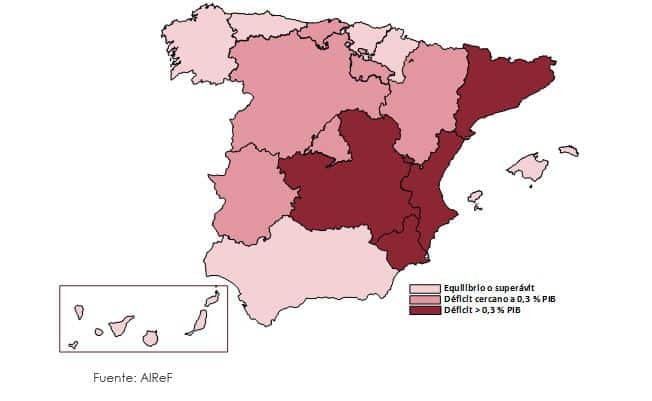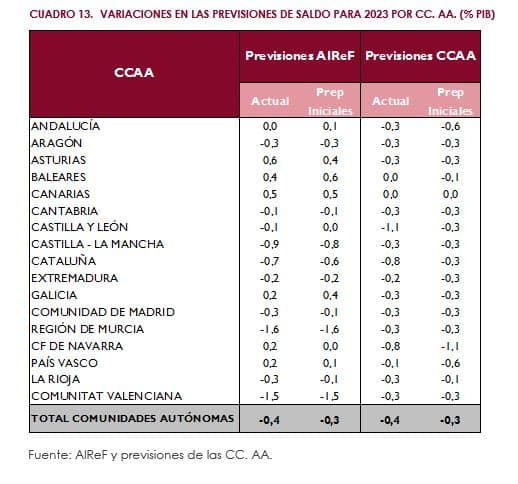
The Independent Authority for Fiscal Responsibility (AIReF) published today on its website the Report on Budget Execution, Public Debt, and the Expenditure Rule for 2023 and the individual reports of the Autonomous Regions (ARs). In the general report, AIReF raises the sub-sector deficit for 2023 by one tenth of a percentage point to 0.4% of GDP.
The revision is explained by a slight reduction in revenues and an increase in the number of expenditures expected at the end of the year in the ARs. The deficit of 0.4% forecast by AIReF is higher than the Government’s forecast of 0.3% of GDP in the Stability Programme for this sub-sector.
AIReF has revised its forecasts considering the implementation data to date, the greater information available on the year-end 2022 (basically regarding the implementation of European funds) and the forecasts, measures adopted, and other updated data provided by the ARs.
At individual level, AIReF improves the forecasts contained in the reports on the initial budgets for the Principality of Asturias, the Basque Country and the Autonomous Community of Navarre and worsens its outlook in Andalusia, the Balearic Islands, Castile and Leon, Castile-La Mancha, Catalonia, the Community of Madrid, Galicia, and La Rioja. It maintains the balance estimates in the other ARs.
Under current forecasts, only four regions (Catalonia, Castile-La Mancha, Region of Murcia, and the Valencian Community) would close with a deficit higher than the benchmark set for the subsector, -0.3% of GDP; six regions would close at around this rate (Aragon, Cantabria, Castile and Leon, Extremadura, Madrid, and La Rioja); and seven could achieve a surplus or balance. However, most of the ARs continue to estimate a deficit like the set reference.
In the context in which the 2024 budgets are currently being drawn up, AIReF recommends that all the ARs avoid structural increases in expenditure or reductions in revenue financed by the temporary increase in revenue that will occur this year. They also should consider the application of the expenditure rule, even if it means temporarily achieving a surplus.







